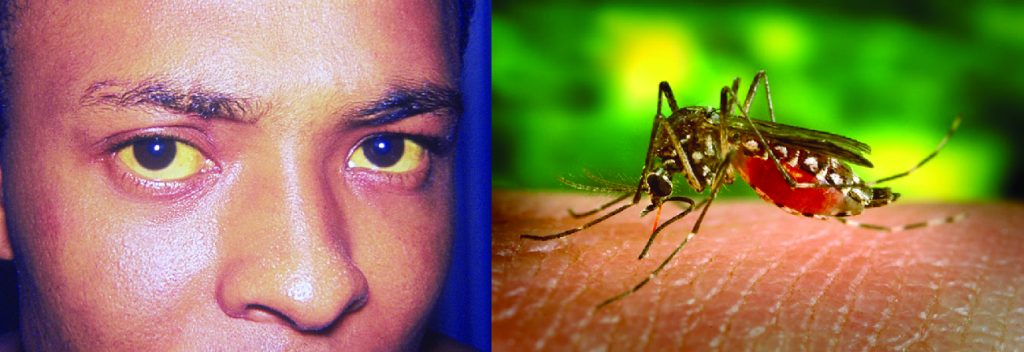107 19 Introduction

Yellow fever was once common in the southeastern US, with annual outbreaks of more than 25,000 infections in New Orleans in the mid-1800s.[1] In the early 20th century, efforts to eradicate the virus that causes yellow fever were successful thanks to vaccination programs and effective control (mainly through the insecticide dichlorodiphenyltrichloroethane [DDT]) of Aedes aegypti, the mosquito that serves as a vector. Today, the virus has been largely eradicated in North America.
Elsewhere, efforts to contain yellow fever have been less successful. Despite mass vaccination campaigns in some regions, the risk for yellow fever epidemics is rising in dense urban cities in Africa and South America.[2] In an increasingly globalized society, yellow fever could easily make a comeback in North America, where A. aegypti is still present. If these mosquitoes were exposed to infected individuals, new outbreaks would be possible.
Like yellow fever, many of the circulatory and lymphatic diseases discussed in this chapter are emerging or re-emerging worldwide. Despite medical advances, diseases like malaria, Ebola, and others could become endemic in the US given the right circumstances.
